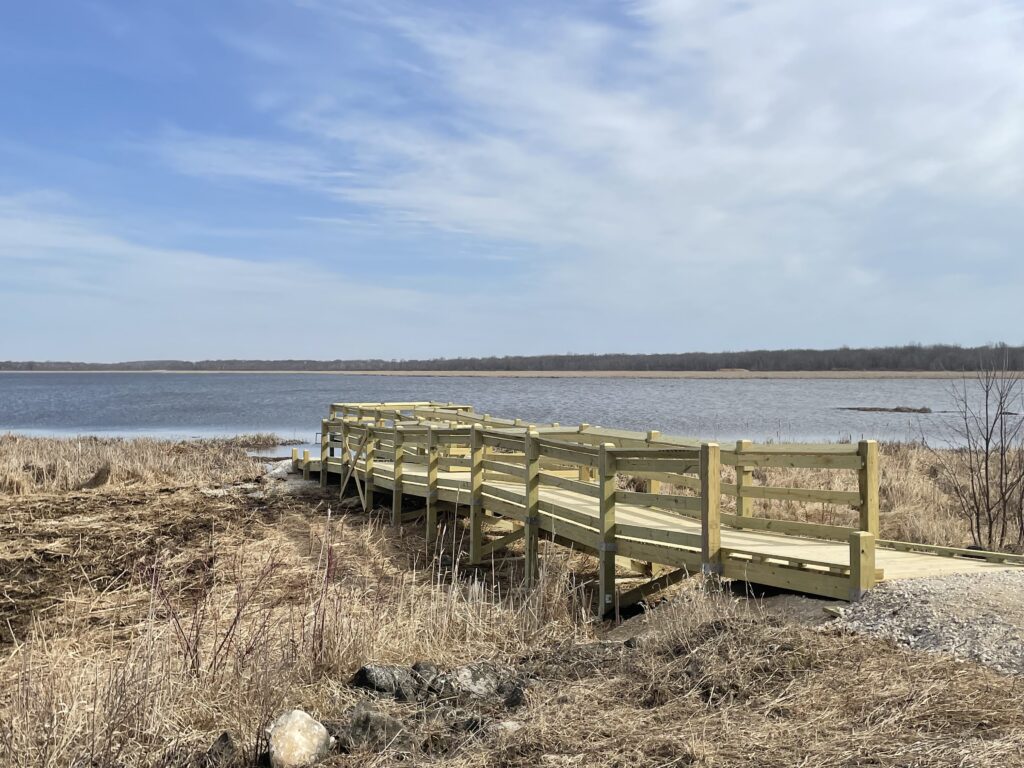Tips For A Safe Boating Season
To make the most of your time on the water, be sure check all of your boat’s equipment and review basic safety tips before your next trip to the launch.
Piers are in, fishing season is open and summer is suddenly right around the corner. In other words, it’s boating season! To make the most of your time on the water, be sure check all of your boat’s equipment and review basic safety tips before your next trip to the launch.
Check that your boat and trailer lights and safety equipment are in working order to save time and frustration at the boat launch. A full checklist of required equipment is available on the last page of the Wisconsin Boating Laws and Responsibilities Handbook.
It’s also important to inspect your life jackets for wear and tear. Most inflatable jackets should be checked for leaks every six months, and the cartridge should be checked before each use. The jacket manufacturer’s website should have instructions on how to check your life jacket status.
Follow the safety tips below and enjoy Wisconsin’s great lakes and rivers with family and friends.
- Sign up now to take an online boater education course.
- Always wear a properly fitted and fastened life jacket when you’re on or near the water. A life jacket will keep you on top of the water if you walk off an unexpected drop-off, a wave or current overpower you or you fall out of a boat.
- Enjoy the waters sober and know your limits. Alcohol blurs a person’s judgment, reaction time and abilities.
- River shorelines and sandbars pose unseen dangers. Higher, fast-moving water can tax an individual’s boating, paddling and swimming skills.
- Keep an eye on the weather and always tell someone where you are going.
Be ready for the unexpected, and always wear your life jacket. Learn more boating safety tips on the DNR’s Boat Safety webpage.
Help Stop The Spread Of Aquatic Invasive Species
As boaters and anglers hit the water, the DNR reminds them to disinfect all gear and follow these guidelines to help prevent the spread of aquatic invasive species:
- Inspect your boat, trailer and equipment.
- Remove any attached aquatic plants or animals (before launching, after loading and before transporting on a public highway).
- Drain all water from boats, motors and all equipment.
- Never move live fish away from a waterbody.
- Dispose of unwanted bait in the trash.
- Purchase any minnows from a Wisconsin bait dealer. Please note that anglers may take leftover minnows away from any state water and use them again on that same body of water. Leftover minnows may be used on other waters only if no lake or river water or other fish were added to their container.
It’s National Amphibian Week!
Happy National Amphibian Week! This annual celebration calls attention to the important role that animals such as frogs, toads, newts and salamanders play in our ecosystem and food chain.
Wisconsin is home to seven species of salamanders, but when was the last time you saw one?
If it was recently, consider yourself lucky. These secretive creatures are largely nocturnal and spend much of their time underground seeking cool, humid microclimates.
If you find a salamander or other amphibian, remember to keep wildlife wild and care for our native creatures and habitats. Take only pictures and leave only footprints.
Learn more about salamanders and other amphibians of Wisconsin on our website. |
Escanaba Lake: A Northwoods Secret
At long last, musky season is finally open in the southern zone, but anglers looking to chase these ferocious fish in Wisconsin’s famous Northwoods will be waiting for a few more weeks.
Getting antsy for the opener? We’ll let you in on a secret: there’s one place in Wisconsin where you can fish for musky year-round: Escanaba Lake in Vilas County.
A 293-acre lake with a maintained boat launch, Escanaba is one of five lakes in the Northern Highland Fishery Research Area (NHFRA) near Boulder Junction. The NHFRA was established in 1946 for long-term monitoring of angler behaviors, fish population dynamics and ecosystem-scale studies to benefit Wisconsin fisheries and inform management decisions.
For this reason, there are no recreational fishing regulations (length limits, bag limits, closed seasons) on any of the five NHFRA lakes outside of the lake-specific fishing regulations for experimental purposes, fishing hours and check-in/check-out rules. And guess what – there’s no closed season for musky on Escanaba.
Permits are required to fish the five NHFRA lakes, but they’re free. What are you waiting for?
Check out the Northern Highland Fishery Research Area webpage to plan your next remote Northwoods musky fishing experience!
|
|
